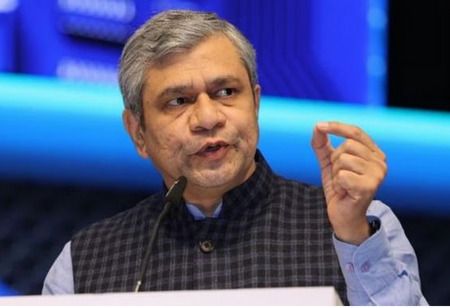
ARM's Bengaluru Facility to Design 2nm Chips: Ashwini Vaishnaw


Union Minister for Electronics and IT Ashwini Vaishnaw announced that ARM, a British semiconductor firm, will use its newly established Bengaluru center to develop two-nanometer chips. The minister made this statement following the inauguration ceremony of the new facility.
The Union Minister emphasized that creating an extensive talent pipeline represents a key objective within India's semiconductor initiative, noting that the country's skilled workforce is attracting multiple international design firms to establish operations in India.
Prime Minister Narendra Modi personally participated in the Paris Summit in France, serving as joint co-chair of the event. The forthcoming summit will concentrate on artificial intelligence safety and its effects. To prepare for this occasion, NITI Aayog conducted a meeting to present and exchange successful AI implementation practices from different Indian districts, Vaishnaw informed the media.
Also Read: XIMB Hosts 7th Annual Business Excellence Summit 2025
The minister emphasized India's semiconductor ecosystem advancements, noting that the nation currently has 10 facilities in development, which consist of two fabrication plants and eight ATMP (assembly, testing, marking, and packaging) units. Among these, CG Semi has commenced pilot production, with two additional facilities anticipated to start operations shortly.
He mentioned that ecosystem partners establishing manufacturing operations in India are now domestically procuring more than 500 specialty chemicals and 50 gases crucial for fabrication processes. Substrate producers have also initiated operations, bolstering the domestic supply chain.
Vaishnaw also referenced the achievements of the Design Linked Incentive (DLI) program, through which multiple companies have secured venture capital funding. Additionally, he revealed the introduction of the India Deep Tech Fund, featuring a $1 billion allocation designed to support artificial intelligence, semiconductors, biotechnology, and other advanced technology sectors, with expansion plans in development.
Also Read: One-Man Army's Resolve Against the Devastating Flood in Bangalore
When describing the government's upcoming strategic phase, the minister explained that Semiconductor Mission 2.0 would expand its focus beyond chip design and manufacturing to include domestic production of equipment and materials, thus establishing a comprehensive semiconductor ecosystem and skills development program.
Looking back at opportunities that slipped away in the past, the minister noted that corporations like Fairchild and Intel had previously contemplated establishing operations in India but were deterred by regulations that didn't match what the industry needed at that time.
Regarding the wider electronics industry, Vaishnaw stated that India has created approximately 25 lakh employment opportunities in this field, with fresh design and production facilities being launched every two weeks.
Also Read: The Shoe Shiners of Mumbai Need Help to Shine Again
He indicated that investments totaling around Rs.60,000 crore are anticipated in electronics component production, with considerable enthusiasm shown through the increase in submitted applications. "This represents only the start. The coming 10-15 years will mark an era of continuous expansion," he concluded.